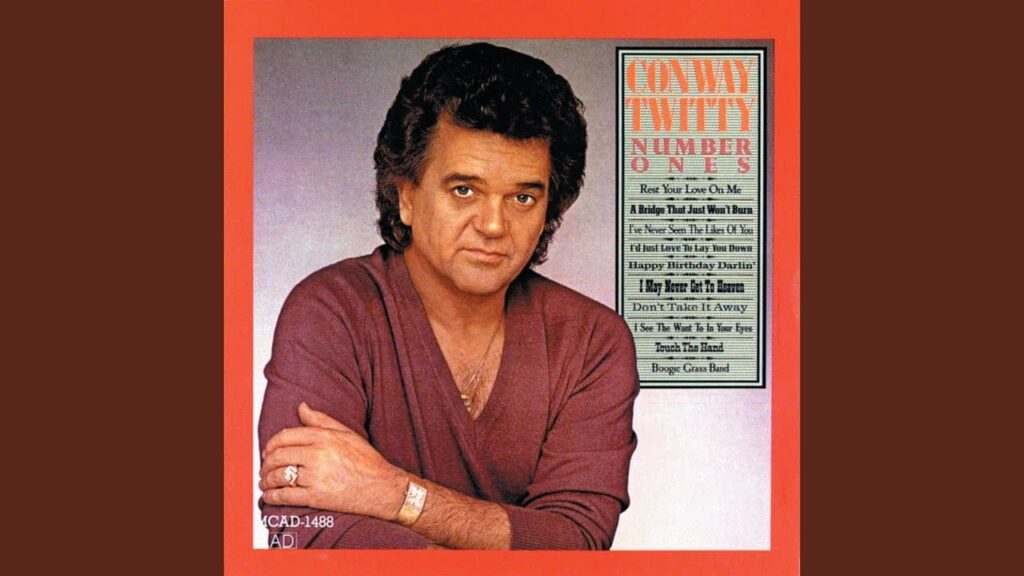
The Profound Devotion That Trumps Paradise: How Love on Earth Can Be Heaven Enough
In the grand tapestry of country music, there are songs that simply entertain, and then there are the enduring classics that capture the whole, aching heart of what it means to be human—to love, to lose, and to find a meaning so deep it redefines one’s whole existence. Conway Twitty’s 1979 masterpiece, “I May Never Get To Heaven,” is firmly in the latter category. It is a reflective ballad that finds a man, freshly heartbroken, measuring the spiritual promises of the hereafter against the earthly, divine reality of a love he once shared. The simple, profound message is that the deep, irreplaceable bond of a perfect love was so close to pure perfection that its memory and experience made the hope of heaven almost redundant.
This timeless track, penned by the masterful songwriting duo of Bill Anderson and Buddy Killen (who had originally seen the song recorded by Don Gibson back in 1960), was a cornerstone of Conway Twitty‘s late-seventies dominance. Released in July 1979 as the second single from his Cross Winds album, it was an instant and overwhelming success. It soared to the coveted Number One spot on both the U.S. Billboard Hot Country Songs chart and the Canadian RPM Country Tracks chart, holding the peak position for a week. This phenomenal performance added yet another jewel to Twitty’s crown, marking his 22nd career number-one hit and cementing his status as one of country music’s most successful and recognizable voices. The single went on to spend a total of 15 weeks on the country chart, proving its deep, resonant connection with the audience of the time.
The Voice of the Soul
For those of us who came of age with the distinct sound of Conway Twitty‘s voice—that deep, gravelly baritone that could transition from a husky whisper to a powerful cry—this song strikes a uniquely nostalgic chord. “I May Never Get To Heaven” is not about religious skepticism; it is about absolute, all-consuming devotion. It tells the story of a man whose world was made perfect by the presence of his beloved. He sings of the beauty of their time together: “I walked with you / And talked with you / And held your lovin’ hand / We loved a while and I lived a while / And I thought that fate had it planned.”
The true punch comes with the lament of loss: “Then someone stole my angel / And I lost what I loved most.” Yet, the song is not simply about grief; it is a declaration of ultimate value. He pictures the traditional promises of the afterlife—”a golden harp,” “celestial wings,” “a golden staircase”—and concludes that, in the face of his lived experience of perfect love, those celestial rewards pale in comparison. The central, unforgettable couplet provides the emotional thesis of the entire song: “I may never get to heaven / But I once came mighty close.”
This is a sentiment that speaks volumes to the older generation, those of us who have lived long enough to know the true cost and reward of deep commitment. It captures that reflective moment when you realize the greatest blessings are not the future hopes but the treasured, tangible memories of the past. Twitty, alongside his producer David Barnes, recorded this in Nashville’s Woodland Sound Studios in February 1979, crafting a production that perfectly frames the gravity and tenderness of the lyric. It’s a gorgeous example of classic country heartache, delivered by a man who never needed to belt a note to convey the weight of a broken heart. He just needed to sing, and you knew every word was true.